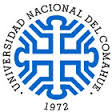El presente trabajo intenta una aproximación a la obra poética de Ricardo Costa y,en particular,a su libro Fenómeno Natural (2012), a partir de la relación que establece con el territorio o, más bien, con los territoriosde la Patagonia, intentando una exploración de los múltiples alcances e implicancias de estos términos y teniendo en cuenta para ello aportes de diferentes disciplinas, entre las que podemos destacar la Geografía o el Turismo, entre otras provenientes de las Ciencias Sociales y Humanas, y también otras disciplinas artísticas. Se propone, en primer lugar, analizar las diferentes ideas acerca del paisaje, su aproximación crítica actual y su posible relación con las literaturas otrora denominadas “regionales”, para luego sí, recuperando el valor de los territoriosliterarios y multidisciplinares, jugar con los conceptos de desterritorializacióny reterritorializaciónde Deleuze y Guattari, resignificados para la Geografía por Herner (2009). Una vez hecho esto, se propone una aproximación final desde la experiencia del autor del presente, utilizando la primera persona del singular, para dar cuenta, a partir de su relación,tanto con los territorios patagónicos, en particular la estepa norpatagónica, como con la poesía de Ricardo Costa, de cómo la construcción desde, en y a través del lenguaje poético de este autor permite expresar el sentido y lo sentido de estos territorios.
The present work attempts an approach to Ricardo Costa’s poetic work, particularly in his book Fenómeno Natural(2012), starting with the relationships established with the territory or, rather, territories of Patagonia. An exploration of the multiple scopes and implications of these terms will be attempted, taking into account contributions from various disciplines, among which stand out Geography and Tourism but with a strong presence of others from the Social and Human Sciences field, besides other Artistic ones. First, it is proposed to analyse the different ideas about landscape, its current critical approach and their possible connections with the formerly so-called “regional literatures”, and then, recovering the literary and multidisciplinary value of the idea of territories, play with the concepts of deterritorializationand reterritorialization, proposed by Deleuze and Guattari and resignified for Geography by Herner(2009). Once this is done, we look forward to a final approach from the personal experience of the author of this work, for what he usesthe first person singular, to account for his close relationship both with patagonian territories —in particular the North Patagonian steppe—and Ricardo Costas’s poetry and how the construction from, in and through his poetic language allows the sense and sensitivity around these territoriesto be expressed.


